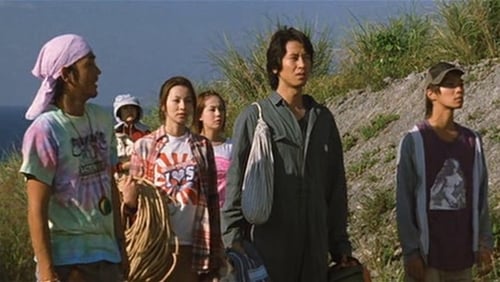
Papajo
X years after the “Shima pshoo” incident, aging Tarugani and Papajo are best friends who live in Patai Village, where those who failed to die continue to exist. When the two find themselves framed as thieves who stole an illegal substance from the local store, they set out on the road, chased by three dripping wet mysterious women.

Ishikawa
Seikichi, makes his living fishing from a small boat off the coast of Okinawa. He and his 12-year-old grandson Akira live in a small, tree-lined village in the northern part of the island which is surrounded by a white-sand beach and plots of pine and flowering bushes. On the cliff that skirts the shore sits an open-air burial ground containing the skull of a kamikaze pilot who was shot down during the last days of World War II. When the wind blows through the bullet hole in the skull, it produces a whistling sound. The locals call it the "Crying Head."

派遣社員のひなみ(香里奈)や大学生の大輔(成宮寛貴)らは、さとうきび収穫時のアルバイト“きび刈り隊”に応募し、沖縄にやって来た。彼らは寝食を共にしながら、約7万本のきびを刈る作業に従事する。

Go Takamine's first theatrical feature is a pioneering work of Okinawan cinema, filmed almost entirely in Okinawan dialect. Taking place shortly before the resumption of Japanese sovereignty over Okinawa, Takamine’s film tacitly addresses the island prefecture's complicated history of occupation and feelings of dislocation through the story of a small community and its preparations for a wedding between a local girl and a Japanese teacher. On the periphery of these events is Reishu (Kaoru Kobayashi), who quits his job on a US military base and uses the extra time to catch snakes and play with ants – and get the bride-to-be pregnant. Takamine’s leisurely-paced film is full of uniquely Okinawan touches that mix in aspects of the island's folklore, accompanied by Haruomi Hosono’s spare and evocative score.


